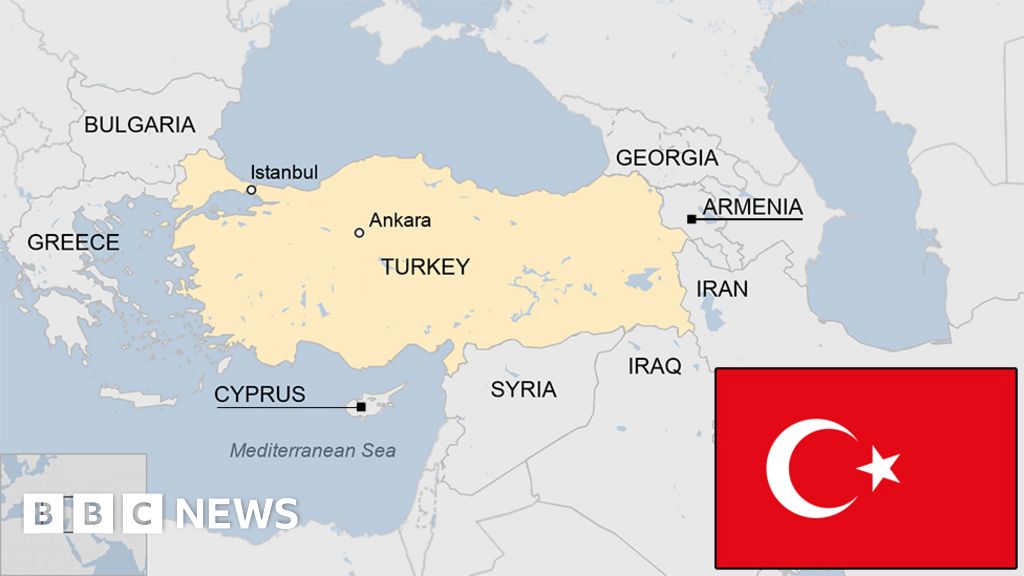Some important dates in Turkish history:
1453 – Sultan Mehmed II captures Constantinople, ending the Byzantine Empire and uniting Asia Minor and the Balkans into the Ottoman Empire.
15th and 16th centuries – The Ottoman Empire expands into Asia and Africa.
16th-17th Centuries – The power and prestige of the Ottoman Empire reached its zenith, especially during the reign of Suleiman the Magnificent (1520-1566), who himself instituted major legislative changes in social, educational, taxation, and criminal law.
During this period, Ottoman armies advanced through the Balkans and the southern part of the Polish-Lithuanian Commonwealth into Central Europe, often coming into conflict with the Holy Roman Empire.
1538, 1571, 1684, 1717 – The Ottoman navy fought for control of the Mediterranean with several powers, primarily the Holy League, consisting of Habsburg Spain, Genoa, Venice, the Knights of Malta, the Papal States, Tuscany, and Savoy.
1683–99 – Great Turkish War between the Ottoman Empire and the Holy League, beginning with the Ottoman siege of Vienna in 1683, which ended in defeat by a relief army led by Jan Hunyadi of the Polish-Lithuanian Commonwealth.
16th to 18th centuries – The Ottoman Empire fought frequent wars with Safavid Persia. In Iran, the Zandids, Afsharids, and Qajars succeeded the Safavids, and wars between the Ottomans and Persians continued into the early 19th century.
16th to 20th centuries – Russo-Turkish Wars: 12 wars fought between the Russian Empire and the Ottoman Empire. With the exception of the 1710-1711 war and the Crimean War of 1853-1856, these ended in defeat for the Ottomans.
1750s onwards – The Ottoman Empire begins to decline.
1839 – The Tanzimat Reforms aimed to modernize the Ottoman Empire to bring it in line with advances in Western Europe.
1876 – These reforms led to a constitutional movement in the Ottoman Empire, but failed to prevent the dissolution of the empire.
1908 – The Young Turk Revolution allows Sultan Abdul Hamid II to restore the 1876 Ottoman Constitution, convene a parliament, and establish a multiparty system of government.
1912-1913 – First Balkan War: The loss of the Ottoman province of Rumelia in Europe led to millions of Muslim refugees arriving in Istanbul, sending shock waves through the nation.
1913 – Ottoman coup: Members of the Committee of Union and Progress (CUP) stormed the Ottoman Empire’s central government building and seized power following defeat in war.
During the Second Balkan War in 1913, Ottoman forces recaptured Edirne and the surrounding area in Eastern Thrace.
1914-1918 – During World War I, the Ottoman Empire fought in alliance with Germany and Austro-Hungary, and Turkey became a de facto military dictatorship.
1915-1917 – Between 300,000 and 1.5 million Armenians are massacred or deported by the Ottoman government from their homeland in Anatolia to present-day Syria. Armenia and many historians consider the killings to be an act of genocide. Turkey denies that the killings suffered by Armenians amount to genocide, saying the killings were committed by both sides. The issue remains highly sensitive.
1918-1922 – The defeat and dismemberment of the Ottoman Empire leads to the final victory of the Turkish national movement in its war of independence against foreign occupation and the rule of the Sultanate.
1923 – Turkey becomes a republic and war hero Mustafa Kemal becomes president. Kemal later adopts the title “Atatürk,” or Turkish leader, and embarks on a modernization project that includes reforming the civil code and enshrining secularism in the constitution.
1939-45 – Turkey remained neutral during most of World War II. It declared war on Germany and Japan in February 1945 but did not take part in the fighting. It joined the United Nations.
1950 – Turkey holds its first free elections, with the opposition Democratic Party winning. Adnan Menderes becomes prime minister and initiates economic liberalization and a shift to pro-American policies during the early Cold War.
1952 – Turkey joins NATO.
1960 – Military coup against the ruling Democratic Party.
1963 – The Association Agreement with the European Economic Community (EEC) (now the EU) is signed.
1974 – Turkish forces occupy northern Cyprus and divide the island.
1980 – After political impasse and civil unrest, a military coup occurs and martial law is imposed.
1984 – The Kurdistan Workers’ Party (PKK) launches a separatist guerilla campaign, escalating into a full-scale civil war that lasts for decades.
1987 – Turkey applies for full membership in the EEC.
2002 – The Islamist Justice and Development Party (AKP) wins a landslide victory in elections, promising to uphold the constitution’s secularist principles.
2003 – AKP leader Recep Tayyip Erdogan wins seats in parliament. Within days, Abdullah Gul resigns as prime minister and is replaced by Erdogan.
2011 – The Syrian civil war erupts, creating tensions along the border between the two countries and causing a massive influx of refugees into Turkey.
2014 – Prime Minister Erdogan wins the first direct presidential elections.
2016 – An attempted coup occurs, and authorities detain thousands of soldiers and judges for their alleged involvement.
2017 – A referendum approves a transition to a presidential system.
2022 – The UN agrees to ask Ankara to officially call the country “Turkey.”
2023 – President Erdogan wins another five-year term as president and his ruling coalition wins a majority in parliament.


